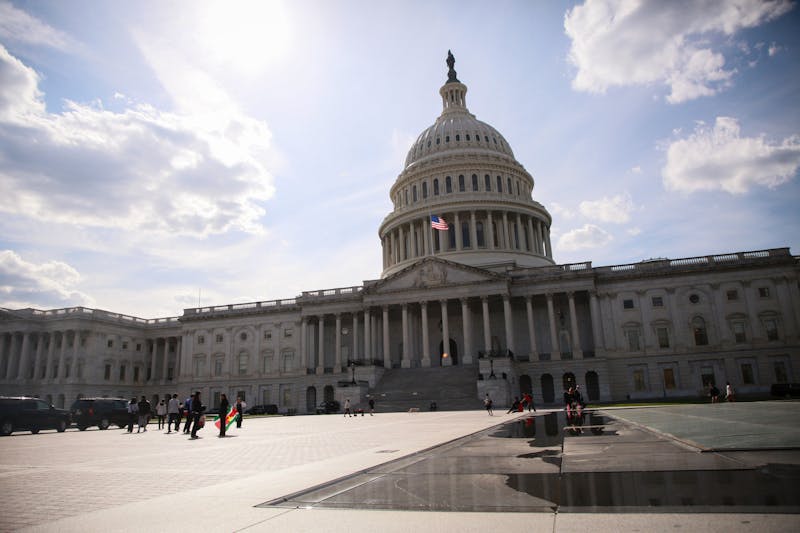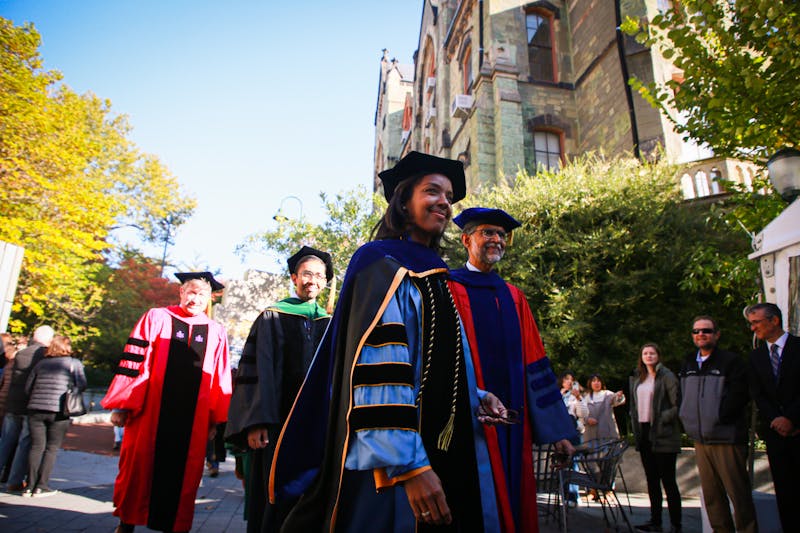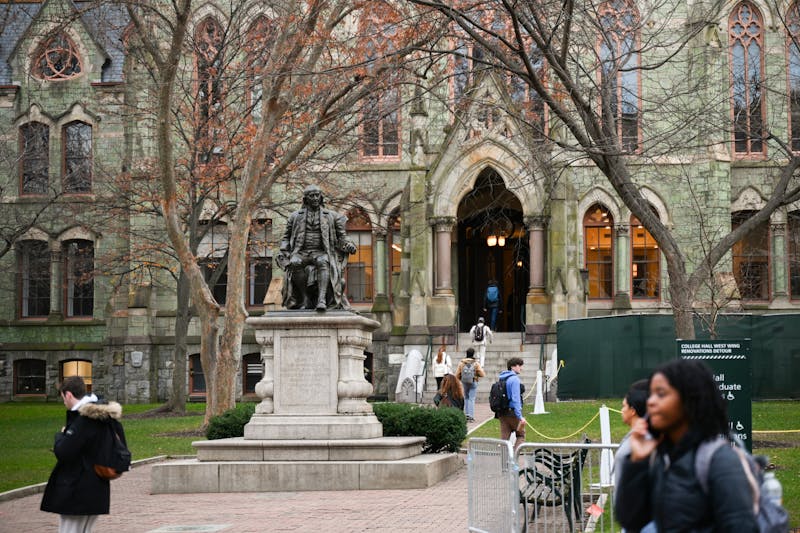
Penn's Board of Trustees met at the Inn at Penn on Nov. 3, 2023.
Credit: Ethan YoungOn Saturday, Dec. 9, Penn received news that had been expected for some time: Liz Magill announced her resignation. She had been receiving criticism from all sides for months. Some community members criticized her delayed acknowledgement of Hamas’s attack in October while others expressed dismay over her omission of any mention of Palestinians from her original statements on the conflict. When the news finally broke, however, a sense of fear over what was to come permeated much of campus discourse, because this event demonstrated just how much Penn's donor base is in control of narratives on our campus.
After the flurry of resignations that occurred that Saturday afternoon, there was a broad range of emotions expressed throughout the Penn community, including anxiety about the future of the University, anger directed towards the donor base (whose outsized influence in these matters was clear to see), and, most importantly, a sense of powerlessness. University presidents are primarily evaluated based on their capacity to raise money and enhance the institution’s brand. When Magill’s statements and perceived lack of action threatened the University in these core areas, pressure for her to resign came largely from Penn’s powerful donor base. These wealthy and highly influential individuals constitute an Ivory Tower within the Ivory Tower; they are an elite subset of Penn’s alumni and donor community, whose interests go far beyond controlling leadership on this campus.
One of the first donors to withhold their funding from the University due to alleged antisemitism was Jon Huntsman Jr. Huntsman serves on the board of Chevron Corporation, a powerful company whose offshore Tamar field in Israel provides a major source of natural gas for Israeli power generators. This field shut down on Oct. 9 as a result of Hamas’s horrific terrorist attack on Israel and only resumed its operations on Nov. 13. Huntsman also previously served on the board of Caterpillar Inc., a corporation whose D9 bulldozers were used to demolish Palestinian neighborhoods in East Jerusalem and Rafah. Thus, it is no wonder that Huntsman recalled his funding from Penn – any inaction on the part of Magill would run counter to his financial interests in Israel’s military-industrial complex.
Another donor who halted his funding, and was a major player in the fight to oust Liz Magill, is Marc Rowan. Rowan is the CEO of Apollo Global Management, a major conglomerate which, on Sept. 5, announced a lucrative partnership with Phoenix Holdings Ltd., one of Israel's largest insurance and asset management corporations. It is easy to see why many of Penn’s donors have so much banking on the dynamics that play out on this campus as many of them have significant amounts of money invested in businesses that operate in Israel.
Given the deeply enmeshed economic interests of Penn’s donor base in a country that is actively committing genocide, the Penn community at large should not focus any of its efforts on “regaining the trust of donors.” Instead, we should focus our efforts on establishing connections between students, professors, and workers – essentially, all those who work on and live within Penn’s campus. Penn’s relationship with its elite donors – who have demonstrated the degree to which they are fundamentally out of touch with daily campus life – is inherently frayed and thus irreconcilable. A wide gulf separates their interests from those of Penn’s students, many of whom have indicated that they are open to dialogue and conversation about what is happening in Israel/Palestine.
Students, faculty, staff – this is a time in our history when we cannot afford to be silent, as the right continues its battle against free expression on university campuses, especially our own. Focusing energy on academics and applying to internships is important, but the time is now to take a stand against the dangerous and absurd notion that donors run our University. The pressure against Liz Magill during her presidency and her eventual resignation should serve as a continuing reminder for us of the power that elites can exercise on university life, and we know that their efforts to restrict free speech and control the narratives on campus are far from over; just look at the questions posed by Marc Rowan to the Board of Trustees and his concern about the University’s “current political orientation.” As we begin this new semester, I encourage you to get organized and stand up to those who think they can control our campus, for our academic freedom is not the only thing at stake.
IZZY FEINFELD is a College first year studying anthropology from Westwood, Mass. His email is izzyf16@sas.upenn.edu.
The Daily Pennsylvanian is an independent, student-run newspaper. Please consider making a donation to support the coverage that shapes the University. Your generosity ensures a future of strong journalism at Penn.
Donate












